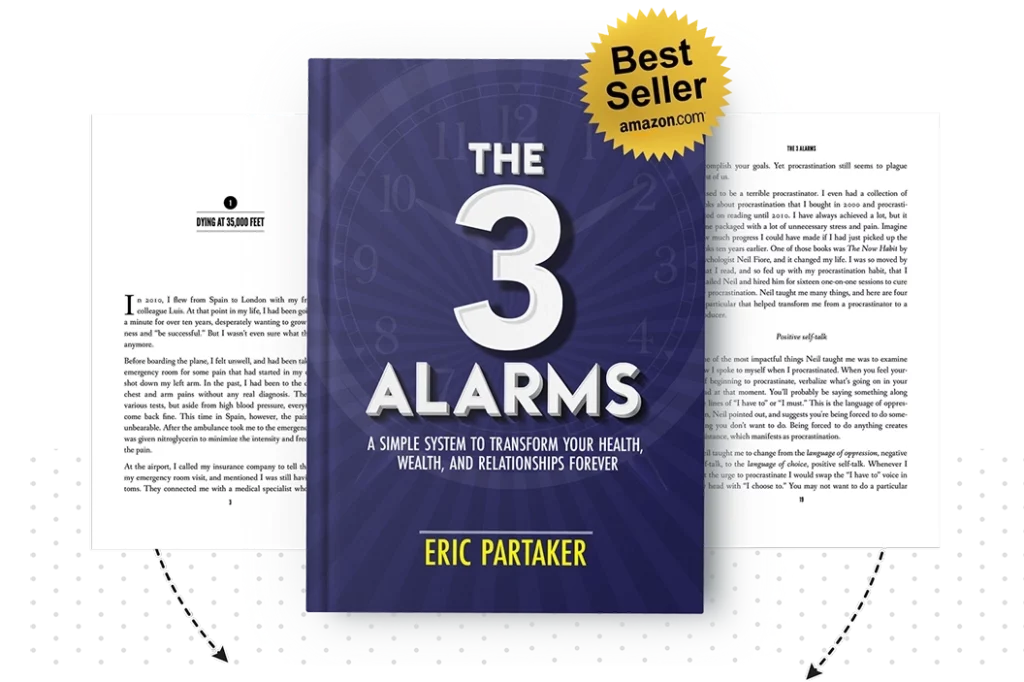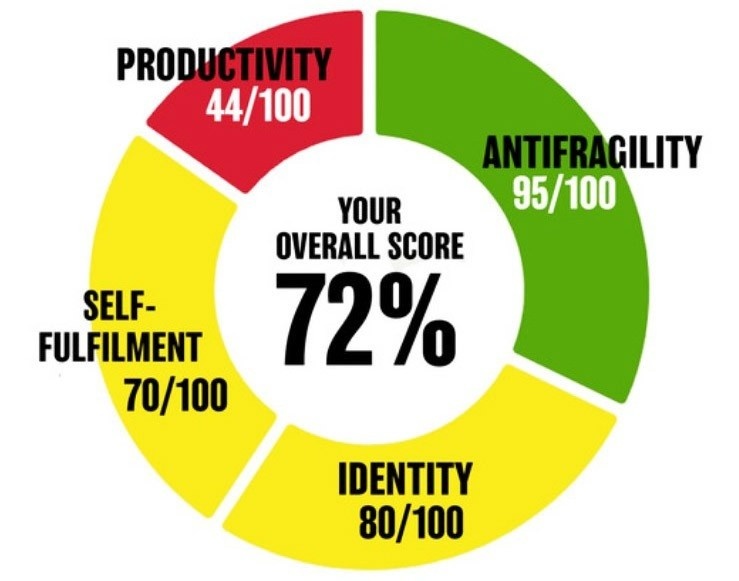To improve your relationship? By the end of this episode, you’ll know exactly what to do to improve your relationship.
KEY POINTS
Are You Communicating? – Ask people what you can do to improve your relationship? Often when you seek to improve something you think in your own bubble and don’t take the opportunity to ask others for their point of view
Create Intention – Wake up on a daily basis with the intention ‘I want to improve my relationship with this person’.
Make Some Time – Schedule time to improve the relationship. Take time out of your calendar weekly to focus on that relationship.
Actively Listen! – Ensure you are actively listening, not passively listening!
Practice Gratitude – Set yourself a daily goal to compliment your significant other on one aspect you are grateful for.
Embrace Carefree Timelessness – Be carefree, don’t count the cloak and those quality moments will spontaneously arrive.
Demonstrate Affection – It is easy to forget just how powerful affection can be.
‘I am sorry!’ React Better Within Your Relationship – Try being the first to apologize rather than the last.
You! – If you don’t have a good relationship with yourself you cannot expect to have a good relationship with others.
FREE DIGITAL BOOK
Grab a copy of my Amazon Best Selling Book The 3 Alarms. Click Here
TRANSCRIPT
To improve your relationship? Well, by the end of this episode, you’ll know exactly what to do to improve your relationship. Hi, my name is Eric Partaker, and I’ve been recognized as one of the top entrepreneurs in the country, as well as the CEO of the year, and I’m also the author of the new best-selling book, The Three Alarms, which focuses on how can we achieve our best without sacrificing the things that matter most, such as our relationships. And most importantly for you, I’ve helped thousands of people realize their full potential in work and life.
The number one thing to do to improve your relationship is to actually ask the people who you seek to improve the relationship with, “Hey, what is it that I could do, such that by doing it, would improve things for you?” Ask them what they think. Often, when we want to improve something with someone else, we kind of think in our own bubble, and we don’t take the opportunity to ask them from their point of view, “What is it that I could be doing that, if I did it, would improve things between us, and would improve our relationship?” And that could be something that I need to be doing better or more often or more consistently. But unless I ask that question, I might make a decision in a bubble about what I think the person needs rather than hearing directly from them. It’s sort of like leadership, as well. If you want to become a better leader, one of the simplest things that you can do is ask the people that you’re leading.
Number two, if you want to improve your relationship with someone, you need to set an intention to do that. You need to wake up on a daily basis with the intention of, “I want to improve my relationship with that person.” And you need to ask yourself, “If I were to do that, if I were to be the person who was already improving the relationship with that other individual, how would that version of me behave? What are the qualities, if somebody were describing that version of me, how would they describe the behaviors of that version of me? How would I be if I had that intention of improving the relationship? How would I be acting? How would I be behaving?” And then another thing that you can do with this intentionality in mind is to ask yourself, in the context of the day, is there anything that you could be doing for that person, such that by doing it, you will be evidencing or supporting this idea of improving your relationship with that person?
Number three, if you want to improve your relationship with somebody, you need to actually schedule the time to do that. And I know that sounds crazy, but think about it. I’m sure you can relate to this. How often are our calendars just completely packed, and suddenly the days go by, the weeks go by, the months go by, and we realize that we haven’t been spending the time with people that matter most. Whether that’s a significant other, friends, family, whatever it may be, it needs to go into your calendar, and what gets scheduled gets done. And so you could be scheduling and committing to, for example, date nights with your significant other, your husband, wife, whatever it may be so that you’re actually taking that time on a weekly basis, spending it just with them and doing something that’s going to strengthen and improve that bond that you have with that person.
Similarly, weekends. They could be dedicated to making sure that you’re socializing with the people that matter most, or if not dedicated, at least making sure that you have some time carved into your weekends where you’re going to be spending time with those people, as well as perhaps with your significant other, once again. And also trips. We need to schedule in our vacations, our holidays. When we schedule them into our calendar and we do that together with the people who matter most to us, whether they’re family, friends, again, significant others, then we have something to look forward to, and it immediately puts like a smile on the relationship because you know exactly when you’re going to be getting that time together away, doing, exploring, whatever it may be. So make sure that if you do want to improve your relationship, that you schedule the relationship improvement in your calendar.
Number four, if you want to improve your relationship with somebody, it also means that you need to improve your listening. When we listen, it’s not just about active listening. You might’ve heard this before. Active listening. Make sure you’re actively listening, not passively listening. I want to suggest something slightly different, that you employ curiosity-based listening. What do I mean by that? With curiosity-based listening, you’re not just listening to what’s being said, but you’re asking that question to take it one level deeper. It forces you to be naturally more engaged with the person, which is kind of critical to improving a relationship with anybody. But at the same time, it also makes that person feel better because when you’re asking curiosity-based questions, you’re demonstrating interest in that person.
Let me give you an example. If you were to ask someone, “Hey, what do you do for a living?” And they say, “Oh, I’m a reporter.” And then you go, “Oh, okay. And whereabouts do you live?” That’s not curiosity-based listening. You just asked the person, “What do you do for a living?” And they tell you that they’re a reporter. And then rather than moving to the next question, stop. Ask one level deeper. Be curious. “Oh, that’s interesting,” you might say. “What made you choose that versus whatever else that you might’ve considered in life. Why are you a reporter? What do you most enjoy about that job?” When you demonstrate curiosity like this through your listening because you listen for the curiosity clues, when you do that, you will improve your relationship with the person that you’re speaking to.
Number five. Practice gratitude. I did this with my wife, and it worked tremendously for improving our relationship. For a period of time, I set myself a goal of making sure that I complimented my wife on one thing, one demonstration of gratitude to her every single day, one thing on a daily basis I told my wife that I was grateful for. In her, something that she did, an aspect of her, part of her personality. But I was always, on a daily basis, demonstrating a bit of gratitude towards her. And that, as you can imagine, strengthened the bond between us tremendously.
Number six. If you want to improve your relationship with someone, then embrace a concept called carefree timelessness. Now, I’ve taken this from Matthew Kelly, who is an author of so many amazing books, one of which includes The Rhythm of Life. And in that book, Matthew shares that one of the things that we seek to do when we’re looking to improve a relationship with someone is have quality time. I want to do quality time right now, but often it’s not quality time that we need, but we just need enough time to be spent with that person without any agenda for quality moments to spontaneously arrive.
And I’ll give you an example, once again, from my own relationship. I was thinking at one point in my marriage that my wife wanted more quality time with me, and so I was trying to tick off all the quality things from her perspective that I thought she was longing or wishing that we were doing, when in fact, all she wanted was me just to spend more time with her. Full-stop. Period. Nothing more than that. Because in her eyes, the wonderful moments, the laughter, the giggles, the great conversations would just naturally materialize by making sure that that time was made available and spent together. If we were just carefree and didn’t count the clock, so to speak, so carefree timelessness, then those quality moments can just spontaneously arrive. But you need to create the container and the space for that magic to happen and for it to appear.
Number seven, and this is similar to the gratitude, but slightly different, and it’s just to show affection. It’s easy for us to forget just how powerful affection can be, whether that’s a hug or a smile or a pat on the back or saying something complimentary to another person. When we demonstrate that we have affection for another person, that we like them, that we approve of them, then it creates a deeper sense of intimacy between the two people. And this doesn’t just need to be, once again, with a significant other or your boyfriend, girlfriend, husband, wife, all of that. This can be to anyone. You can demonstrate affection. It doesn’t need to be physical. You can demonstrate affection with words. You can demonstrate affection in so many ways. Think about the people in your life that you want to improve a relationship with, and ask yourself, “How can I demonstrate more affection to them? How can I demonstrate that I care and I value things in them?” And you’ll be surprised by just those simple little acts, what they can do in terms of relationship improvement.
Number eight. To improve a relationship, don’t ever forget one of the most powerful set of words on the planet for relationship improvement: “I am sorry.” We all make mistakes all the time within our relationships, within our professional relationships, within our personal relationships, and one of the simplest things that you can do is get off your high horse, come back down to the ground, and just with vulnerability and empathy and care say that you’re sorry for whatever it is. Maybe you reacted poorly to something. Maybe you didn’t do something that you said you were going to do. But say that you’re sorry. Apologize for your mistakes. And it can immediately bring two people together so much more quickly than each of you trying to just stand your ground. So if you want to improve your relationship, try being the first to apologize, rather than the last.
Number nine. When it comes to improving a relationship, really, really important, don’t forget yourself. And I know when we’re talking about improving a relationship, we’re automatically thinking about us relating to another person. But if you don’t have a good relationship with yourself, it’s going to be very hard for you to have a good relationship with someone else, so don’t forget yourself. Are you looking after yourself? Are you getting the sleep that you need, the exercise that you need. Are you eating in the way that you know you should be eating? Are you getting time for yourself and the activities and the things that you most enjoy? Are you having time to spend with some of your other friends or colleagues or other relationships that are important for you, too, so that you feel balanced and fulfilled when you’re trying to spend time, perhaps with this other person or this relationship that you’re trying to improve? So don’t forget that looking after yourself can significantly improve your ability to relate in a better way to someone else.
And drum roll. Here we go. The last thing that I said that I would share at the end. Remember, at the beginning, I said, “Make sure you stick around all the way to the end because I’m going to share with you something that you haven’t heard anywhere else.” Here it is. When we seek to improve a relationship with someone, we often forget that there’s two sides of that coin, and we seek to do all of these things proactively to improve the relationship. Everything that we’ve been talking about is very much on the proactive side of the coin. But half of the improvement that we seek within a relationship is on the reactive side of the coin, too.
What do I mean by that? By simply learning to react better within a relationship, you will get a lot of the relationship improvement that you seek. There are constantly things that happen in interpersonal relationships that can trigger us, that can bring out the worst in us, and all of those are decision points. All of those are moments where you can either act as the best version of you would. Pause, for example. Not lose your cool. Make sure that you make the right decision. Or you can react in a way that would represent the less-than-best version of you. And which of those two versions do you think is most likely to lead to an improvement in the relationship? Obviously, the best version of you, the response that’s associated with that best version of you. Last but not least, if you’re looking to improve a relationship, think about, “How can I react better to the things that I don’t like in the relationship?” Because half of the improvement, once again, that you seek in that relationship is probably simply related to you reacting better within that relationship.
And I’d love to hear from you, so don’t forget to leave a comment and a rating as well. And if you’d like to get a copy of my new book, The Three Alarms, please head over to my website at EricPartaker.com. That’s E-R-I-C, EricPartaker.com, where you can pick up a free digital copy of my new best-selling book, The 3 Alarms.




